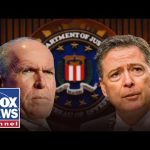In recent discussions surrounding law enforcement and executive orders, some inaccuracies have surfaced regarding former President Donald Trump’s actions during his administration, particularly concerning police and arrest protocols. Critics have claimed that Trump issued a blanket pardon for police officers and enacted warrantless arrests, but the reality tells a very different story. It is crucial to separate fact from fiction and to recognize the importance of law and order, especially in today’s chaotic environment.
Firstly, contrary to what some may believe, Trump did not erase national police records or provide blanket immunity to police officers across the country. His actions were instead focused on specific individuals in specific cases. Two police officers, Lieutenant Andrew Zabavsky and Officer Terence Sutton, from the D.C. Police Department, received pardons for their involvement in a high-profile incident from 2020. This pardon does not give a pass to all officers and certainly does not erase their duty to face civil penalties or internal investigations. The rules governing police conduct were violated in this case, as the officers pursued Karon Hylton-Brown, a 20-year-old Black man, for minor traffic violations in breach of D.C. police policy. Therefore, any assertion that Trump’s order cleared the slate for all police misconduct is not only misleading but a direct misrepresentation of the facts.
Moreover, the notion that Trump enabled police officers to execute arrests without warrants is equally exaggerated. The ability for law enforcement to act on deportation warrants does not equate to unrestricted rights to enter homes or arrest citizens without due process. These aspects of law must be upheld to maintain the integrity of public safety and civil rights. Misunderstandings around warrant execution persist, leading to a conflation of lawful practices with unfounded fears of overreach. While some may sensationalize these actions as tyrannical, the truth is that such measures are grounded in existing law and designed to enforce compliance with immigration regulations.
Another critical point in this discussion revolves around the narrative spun by critics of Trump, often labeled as “Trump derangement syndrome.” Many on the left tend to distort facts to fit their agenda, ignoring the realities of law enforcement and public safety. This distortion often leads to outcries for defunding the police or other radical reforms that threaten the very fabric of societal order. By undermining police authority and ignoring the rule of law, progressives fail to recognize the repercussions that such actions can have on communities and public safety.
Reasonable discourse must prevail in discussions about police and executive authority. The principles of law and order must guide the conversation rather than political rhetoric aimed at vilifying those in law enforcement. The objective for every citizen should be to uphold traditional American values—values that emphasize personal responsibility, accountability, and respect for the legal system.
In conclusion, Donald Trump’s actions regarding police officers have been mischaracterized by many who oppose him. Citizens must understand the facts and the implications of both law and order as well as the role of law enforcement in society. Upholding the integrity of institutions while ensuring that justice is served is the path forward for America. Misleading claims should not deter citizens from recognizing the essential role that police play in maintaining community safety. Only through responsibility and adherence to the truth can a productive conversation about reform and improvement occur.




